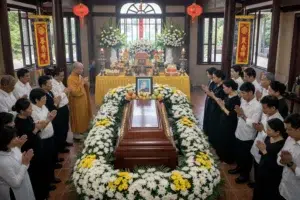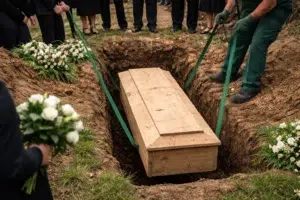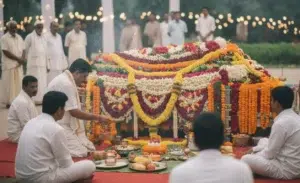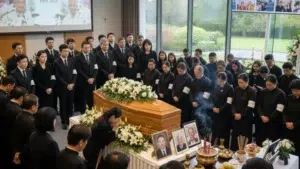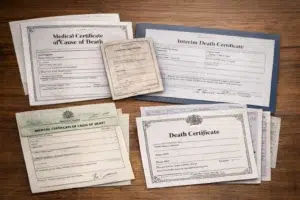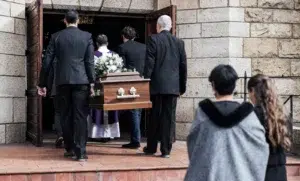Planning a funeral can feel overwhelming, especially during a time of grief. Funeral services in UK come in many forms to suit different cultural, religious, and personal preferences. This guide will help you understand the options available, what to expect, and how to make informed decisions when arranging a funeral.
Understanding Funeral Services in the UK
A funeral service is not just about saying goodbye. It’s about honouring a life lived. In the UK, funerals typically combine legal requirements, cultural practices, and personal wishes. Whether you’re arranging a traditional burial or a modern cremation, understanding the basics will help you plan more confidently.
What Are the Different Types of Funeral Services?
1. Traditional Burial
This is the most common type of funeral in the UK. It involves a service at a church, chapel, or graveside, followed by burial in a cemetery or churchyard. Costs include a coffin, burial plot, and headstone. Read more about burial: Process, Traditions and Modern Choices.
2. Cremation
Cremation is now more popular than burial in the UK due to its lower cost and flexibility. You can choose to scatter, bury, or keep the ashes in an urn. Services may take place at a crematorium or another location.
3. Green Funerals
Also known as eco-friendly funerals, these focus on reducing environmental impact. Biodegradable coffins, woodland burials, and minimal embalming are common choices.
4. Direct Cremation
This no-frills option skips a traditional service. The body is cremated without attendees, and ashes are returned to the family. It’s affordable and often chosen by those who prefer simplicity.
Read more about the types of funeral services.
Arranging a Funeral Service in the UK
Arranging a funeral in the UK starts with registering the death at the local register office, followed by contacting a funeral director to manage the arrangements. Key decisions include choosing burial or cremation, setting a venue and date, and organising the coffin, flowers, transport, and service content. Families may also personalise the ceremony and plan a wake or reception. With support from Gooding Funeral Services, every step is handled with compassion and care.
Religious and Cultural Considerations
The UK is home to diverse communities, and funeral practices reflect this:
- Christian Funerals: Often held in churches with hymns and prayers.
- Muslim Funerals: Include ritual washing (Ghusl), shrouding, and burial within 24 hours.
- Asian Funerals: These vary widely across cultures. Sikh funerals often involve prayers at the Gurdwara and cremation, while Hindu funerals focus on cremation and the scattering of ashes in sacred waters. Both place great emphasis on rituals that guide the soul’s journey.
- Jewish Funerals: Typically simple, with immediate burial and no embalming.
- Caribbean Funerals: Known for their heartfelt celebrations of life, these funerals often include lively music, vibrant attire, and a strong sense of community. Mourners may sing, dance, and share stories to honour the deceased, blending mourning with joyful remembrance.
Gooding Funeral Services understands the importance of cultural sensitivity and can tailor arrangements to meet specific traditions. Read more about the cultural & religious funeral practices in the UK.
Memorials & Tributes in the UK
Memorials and tributes provide lasting ways to honour a loved one beyond the funeral service. Families in the UK often choose traditional options such as headstones and grave markers, or more personal touches like memorial benches and trees in meaningful places.
Ashes may be interred, scattered in a special location, or kept in dedicated memorial spaces. Increasingly, digital memorials and online tributes allow friends and family to share memories and messages, while keepsakes such as photo albums or video montages help create lasting memories.
Eulogies and celebrations of life also offer heartfelt opportunities to reflect on the character and achievements of the deceased, turning remembrance into a celebration of their journey.
Key Elements of a Funeral Service
- Funeral Director Services: They handle logistics like transporting the deceased, preparing paperwork, and coordinating the ceremony.
- Coffins and Caskets: Available in wood, metal, or eco-friendly materials, with various price points.
- Venue: Churches, crematoriums, or outdoor settings can host the service.
- Transportation: Hearses and limousines are standard, though alternative vehicles (like horse-drawn carriages) are also an option.
- Flowers and Tributes: Floral arrangements, memory boards, and photo displays add a personal touch.
- Music and Readings: Hymns, favourite songs, or poems reflect the personality of the departed.
Choosing Funeral Music and Readings for Funerals
Music and readings play a powerful role in setting the tone of a funeral and reflecting the personality of the deceased. Many families opt for traditional hymns or classical pieces, while others prefer favourite songs that hold special meaning.
Readings may include religious texts, poetry, or personal reflections shared by family and friends. Together, these choices create a heartfelt and meaningful service, offering comfort to mourners and celebrating the life of the person who has passed.
Read more about choosing music and readings for a funerals in uk
Aftercare in Funerals in the UK
Support doesn’t end with the funeral. Many families benefit from aftercare services such as grief support, counselling, and access to family resources that help them cope with loss.
From one-to-one sessions and support groups to practical advice on managing legal and financial matters, aftercare ensures loved ones are not left to navigate their grief alone.
Funeral Costs in the UK
Funeral costs vary widely depending on location, service type, and personal choices.
- According to the SunLife Cost of Dying Report 2024, the average cost of a funeral in the UK is around £4,141 for a burial and £3,953 for a cremation.
- Direct cremations are significantly cheaper, averaging £1,511.
- Gooding’s Funeral Services start from £1,125.
Legal Requirements and Paperwork
Certain documents are essential for a funeral in the UK:
- Death Certificate: Issued by a doctor or hospital.
- Green Form (Certificate for Burial or Cremation): Required for burial or cremation.
- Funeral Plan or Will: Check if the deceased had pre-arranged their funeral.
A funeral director can assist with registering the death and obtaining the necessary forms. Learn more about the legal requirements after a death in the UK.
Prepaid Funeral Plans
A prepaid funeral plan allows individuals to arrange and pay for their funeral in advance. This can ease the financial and emotional burden on loved ones. Plans often lock in today’s prices, protecting against future cost increases.
Read more about Pre-Paid Funeral Plans in the UK.
Funeral Repatriation in the UK
Funeral repatriation involves transporting a loved one’s remains to their home country for burial or cremation, a process that requires specialist knowledge and coordination. In the UK, this includes arranging documentation, liaising with consulates, airlines, and local authorities, and ensuring cultural and religious practices are respected.
With the support of an experienced provider like Gooding Funeral Services, families can navigate repatriation with dignity and reassurance during a difficult time.
Read more about funeral repatriation in the UK
The Role of a Funeral Director in the UK
A funeral director provides professional support, guidance, and organisation throughout the funeral process. Their role typically includes:
- Arranging transportation of the deceased into their care and to the funeral venue.
- Managing paperwork such as death certificates, cremation permits, and legal documentation.
- Advising on options for burial, cremation, and eco-friendly alternatives.
- Organising the venue, officiant, and service details to reflect cultural, religious, or personal wishes.
- Providing coffins, caskets, and urns with options suited to different preferences and budgets.
- Coordinating funeral transport including hearses, limousines, or alternative vehicles.
- Supporting families with tributes such as flowers, music, readings, and eulogies.
- Offering emotional support and guidance throughout the planning process.
Read more about the role of a funeral directors in uk.
Choosing a Funeral Director
A good funeral director provides support, guidance, and transparency. Look for providers registered with the National Association of Funeral Directors (NAFD) or the Society of Allied and Independent Funeral Directors (SAIF).
Gooding Funeral Services is a trusted, independent provider that offers compassionate care and personalised services across the UK.
When deciding, it’s worth considering the differences between local, national, and independent funeral directors like Gooding:
- Local funeral directors often bring deep knowledge of the community and personalised care, but their resources may be limited.
- National chains provide consistency and wider service availability, though they can sometimes feel less personal.
- Gooding Funeral Services, as an independent provider, combines the best of both—offering professional expertise, extensive resources, and a warm, compassionate approach tailored to each family’s needs.
Here’s a complete guide to choosing the right funeral director for Your Family in the UK.
FAQs
1. What happens in a funeral service?
A funeral service typically includes a gathering of family and friends to honour the deceased. It may involve readings, prayers, music, a eulogy, and sometimes religious or cultural rituals. The service can take place at a church, crematorium, or graveside, followed by burial or cremation.
2. What do you have in a funeral service?
Common elements of a funeral service include a coffin or casket, floral tributes, music, readings, and a tribute or eulogy. Some services may also feature visual presentations, memory boards, or symbolic gestures like candle lighting to celebrate the life of the deceased.
3. How long does a funeral service last?
The length of a funeral service varies, but most last between 30 minutes and an hour. Religious ceremonies may be longer, especially if they include additional rites or prayers. Graveside or crematorium services are often shorter.
4. How much is a basic funeral?
The cost of a basic funeral in the UK varies depending on the type and location. On average, a cremation costs around £3,953 and a burial around £4,141, according to the SunLife Cost of Dying Report 2024. Direct cremations, which exclude a formal service, are the most affordable option at approximately £1,511. At Gooding, our package starts at £1,125
Final Thoughts
Arranging a funeral is one of life’s most difficult tasks, but with the right guidance, you can create a meaningful tribute. Whether you’re pre-planning for yourself or organising a loved one’s farewell, Gooding Funeral Services is here to help every step of the way.
Contact Gooding Funeral Services
For expert advice and caring support, contact Gooding Funeral Services today. Our experienced team is ready to assist with all your funeral needs.
Pages You Might Like:
Funeral directors UK, Funeral services UK, Funeral Services in Leeds, Funeral directors Leeds, Funeral Directors in Bradford, Funeral Directors Bradford, Funeral Directors Manchester, Funeral Directors Huddersfield, Funeral Services in Doncaster, Asian Funeral Services, Hindu Funeral Services, Sikh Funeral Services, Caribbean Funeral Service


